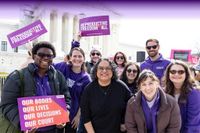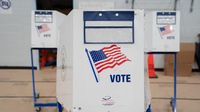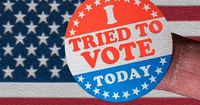This week, the U.S. House of Representatives passed House Resolution 22, known as the Safeguard American Voter Eligibility (SAVE) Act, a controversial piece of legislation that has sparked intense debate across the political spectrum. If enacted, the SAVE Act would impose stringent requirements for voter registration, mandating that individuals present documentary proof of U.S. citizenship in person, such as a birth certificate or passport. This move has raised concerns about potential disenfranchisement, particularly among vulnerable populations.
According to the Brennan Center for Justice, more than 21 million Americans lack immediate access to the documents required by the SAVE Act, with nearly 4 million individuals lacking any proof of citizenship altogether. This could significantly reduce ballot access for groups that already face challenges, including elderly voters, young people, rural residents, and women who have changed their names. In fact, studies show that instances of noncitizen voting are exceedingly rare; in 2016, only 30 suspected cases were identified out of 23.5 million ballots cast, a minuscule 0.0001%.
The implications of the SAVE Act extend beyond registration. It also seeks to prohibit states from counting mail-in ballots that arrive after Election Day, even if they are postmarked on time. This provision could disenfranchise military voters, rural voters, and college students who often rely on mail-in voting. Additionally, the legislation subjects election officials to criminal penalties or civil lawsuits for registering individuals who do not present the required documentation, even if those individuals are, in fact, U.S. citizens.
Representative Marie Gluesenkamp Perez of Washington, who voted in favor of the SAVE Act, emphasized her belief that voting is a sacred right for citizens. "I do not support noncitizens voting in American elections – and that’s common sense to folks in Southwest Washington," she stated. However, she acknowledged that the SAVE Act faces significant hurdles in the Senate, particularly due to the filibuster and concerns over its flawed provisions.
Perez also expressed apprehension about a provision in a recent Executive Order that would invalidate ballots postmarked by Election Day if not received by that day. She noted that this could undermine the votes of over 250,000 Washington citizens whose ballots were legally counted after Election Day in the last election. "I’m confident Washington state’s vote-by-mail system is safe, secure, and reliable," she added.
Opponents of the SAVE Act, including the organization Reproductive Freedom for All, condemned the legislation as an attack on democracy. Mini Timmaraju, the President and CEO of the organization, stated, "Voting is a fundamental right, and these attacks on our democracy are designed to prevent millions of people from being able to cast their ballots." Timmaraju highlighted the bill's potential to disproportionately affect marginalized communities, including trans individuals, new citizens, and married women who have changed their last names.
The SAVE Act has also drawn criticism from the Legal Defense Fund (LDF), which argues that the bill would effectively eliminate online voter registration and severely curtail voter registration drives that many Americans rely upon. Janai S. Nelson, President and Director-Counsel of the LDF, described the SAVE Act as a discriminatory barrier to voting, stating, "Its true purpose, rooted in fear of the multiracial democracy the United States can and must become, is to limit access to the ballot and stifle the political power of our increasingly diverse electorate."
Legal experts note that the SAVE Act's stringent requirements could further complicate the already complex landscape of voter registration. For instance, only half of the total U.S. population and just one-third of Black individuals hold valid U.S. passports. Additionally, nearly 70 million Americans have taken a spouse’s last name, which may not match the name on their birth certificate, presenting yet another hurdle to registration.
As the SAVE Act heads to the Senate, its fate remains uncertain. It requires the support of at least 60 senators to advance, and many observers believe it is unlikely to garner enough votes. Nevertheless, citizens are encouraged to reach out to their senators to express their concerns about the implications of the bill.
The SAVE Act has reignited discussions about voting rights and access in the United States, highlighting the ongoing struggle to ensure that every eligible citizen can participate in the democratic process without undue barriers. As lawmakers debate the future of this legislation, the voices of those affected by these proposed changes will be crucial in shaping the outcome.
In conclusion, the passage of the SAVE Act in the House marks a pivotal moment in the ongoing battle over voting rights in America. As the legislation moves to the Senate, the focus will be on whether it can withstand scrutiny and opposition from those who view it as a significant threat to democratic participation.








